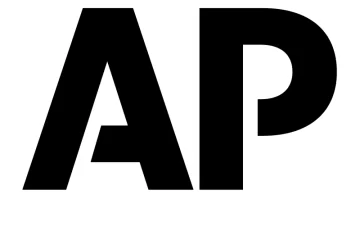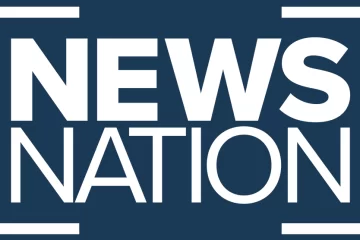Bianna Golodryga speaks to Gershon Baskin, Middle East Director of International Communities Organization, about the hostage deal between Israel and Hamas.
BIANNA GOLODRYGA, CNN SENIOR GLOBAL AFFAIRS ANALYST: Hello everyone, and welcome to “Amanpour.” Here’s what’s coming up.
Finally, a breakthrough. Israel and Hamas agree on a four-day truce to exchange Israeli hostages for Palestinian prisoners. Veteran negotiator
Gershon Baskin joins me next.
Fairness and justice in war. I speak to founding international criminal court prosecutor Luis Moreno Ocampo, and I get his take on Argentina’s
controversial president-elect.
Then, stamped from the beginning, Michel Martin asked director Roger Ross Williams about his new documentary exploring the roots of racism in
America.
And finally, the music and life lessons of the legendary Yusuf/Cat Stevens.
Welcome to the program, everyone. I’m Bianna Golodryga in New York, sitting in for Christiane Amanpour.
Well, now that both Israel and Hamas signed off on a hostage deal, we are learning more about the details. An Israeli official tells us the fighting
is set to pause beginning 10:00 a.m. local time, 3:00 in the morning New York time Thursday.
Now, if all goes according to plan, at least 50 hostages held by Hamas will be released in exchange for some 150 Palestinian prisoners currently in
Israeli jails.
Much needed humanitarian relief will come to Gaza. The pause could potentially last longer, with an extra day added for each additional 10
Israeli captives released.
The hostages’ families face an excruciating week, not knowing whether their loved ones will be among those released. Here’s Abby On, who has three
family members held by Hamas.
ABBY ON, RELATIVES HELD HOSTAGE BY HAMAS: This is what you think about if your eyes close at night and when you wake up in the morning, and it’s all
consuming. It is something that we are not processing. We’re just living through until every one of these hostages are home and our soldiers are
safe.
GOLODRYGA: For displaced Palestinian civilians in Gaza, the pause can’t come soon enough.
UNIDENTIFIED MALE (through translator): We hope the ceasefire will be good. We have been waiting for the ceasefire. We have been hoping for it.
We pray for peace for all these people so we can be done with these challenges we are facing.
GOLODRYGA: But both sides are clear, this is not a ceasefire. Once the pause is over, the fighting continues. Gershon Baskin is a veteran hostage
negotiator familiar with all of the players in this breakthrough deal. He played a prominent role in the release of Israeli soldier Gilad Shalit in
2011. And he joins us now. Gershon, welcome to the program.
You’ve become a regular now, it gives us a sense of the crisis at hand. But, breakthrough, finally. First, your reaction to this deal.
GERSHON BASKIN, MIDDLE EAST DIRECTOR, INTERNATIONAL COMMUNITIES ORGANIZATION AND AUTHOR, “THE NEGOTIATOR: FREEING SCHALIT FROM HAMAS”:
Well, this was the first good day we’ve had since the beginning of the war on October 7th. And all things considered, I think it’s a pretty good deal.
It’s one that I proposed on the second or third day of the war and passed it over to the Israelis and Hamas people, the Qatari and the Egyptians. I
talked about a bigger deal, in fact, of all the women and all the children in exchange for the women and minor prisoners in Israel.
But this is a good start. 50 is a good number to begin with. It’ll happen in four days. And as you said, it can be extended to five days or six or
seven or eight. I think our goal should be to get all the civilian hostages out of Gaza. The people of Palestine and Gaza are getting the deserved
break from the bombing that they need so badly. Humanitarian aid will be entering at a much bigger quantity.
I think even the Israeli soldiers can use a break. They’ve been more than a month in the field and not the best conditions that anyone would want to be
in. So, all around, even though there are risks and there are dangers, a pause in the fighting makes the Israeli soldiers exposed to danger and it
gives Hamas time to rearm and regroup and replan their strategy for the next phase of the war. But the most important thing is bringing these
children and women home to their families.
GOLODRYGA: No doubt that is the most important aspect here, but it struck me when you said that this was a deal. In fact, you proposed an even larger
deal, just days into the war. Why was that met with resistance at the time? Was it coming more from the Israelis or was it Hamas? And what does it tell
you about agreed — an agreed upon deal now? Who is feeling more vulnerable at this point?
BASKIN: It takes time for any kind of hostage negotiation to be ready to be accepted by the parties, they all think they have other options rather
than negotiating.
These are very strange negotiations because they’re not direct. Hamas and Israel are not talking to each other. It’s dependent upon third-parties who
have their own interest in their own ways of working. It is essentially a one-sided negotiation. Israel responds to proposals put forth by Hamas and
either says yes or no.
On this particular proposal, President Biden weighed in heavily on the Qataris to improve some of the terms for the Israelis. But the other very
bizarre thing about these negotiations is that Israel is essentially negotiating people that they are determined to kill. And just imagine that
kind of negotiation. Israel is determined to remove all the leaders of Hamas, the religious — the military leaders and the political leaders, and
these are the people who are making decisions on these hostages.
GOLODRYGA: You mentioned each party in these negotiations having an interest, it goes without saying that that’s the case for the Israelis and
Hamas. But for a mediator, you would assume they would have no interest other than playing an objective mediator. So, what is the Qatari’s interest
here?
BASKIN: Well, the Qataris have spent billions of dollars to be integrated into the global economy at the same time that they play both sides. Qatar
is a state that supports terrorism. They have supported Hamas for years. They host their leadership. They have funded Hamas with more than a billion
dollars over the years. Their Al Jazeera Arabic speaking station, as opposed to Al Jazeera English is a mouthpiece for the Muslim Brotherhood
and Hamas.
So, they have their own way of working. They have played roles in negotiations between the U.S. And Taliban. They played roles in negotiating
with Iraqi insurgents at the time. It’s a very bizarre country with a very bizarre set of interest. No one can really put that much pressure on them.
The United States, it’s largest military base in the region is in Qatar, and then Europeans desperately need the Qatari gas to keep warm in the
winter. So, no one is going to put Qatar on the list of nations that support terrorism, which would cut their ability to invest in the world,
which they’re doing. And they want to appear in the favor of the West because they are busy buying companies on NASDAQ and in Silicon Valley and
properties in London and Qatar Airlines flies all over the world.
GOLODRYGA: How are we expected to see this happen? Will the public see any images in your view? Because of course, when two elderly ladies were
released, we saw Hamas hand them over to the Red Cross. Now, we’re getting information that that will not be the case here likely, if for no other
reason than among this first tranche of hostages will be young children. So, when do you expect the public to either see or get confirmation that
they have made it into Israel safely?
BASKIN: I think it’s likely that before this evening is over, the Israelis will get the list of the first 10 or 12 hostages to be released. There will
be a six-hour pause in Israeli flying drones over the Gaza Strip in order to enable Hamas to organize the hostages. I assume that what they will do
is use several different convoys of identical vehicles leaving from different locations in order to prevent the Israelis from actually
identifying where the hostages are coming from.
They will arrive to the border crossing with Egypt and the International Red Cross will receive them and check them, verify their identities, and
turn them over to the Egyptian side of the border, where they’ll be transported to the Israeli side.
On the Israeli side, they’ll be taken immediately to hospital in Israel for medical checkups. I assume that their families will be waiting for them at
the hospitals where they will be taken. Shortly after they’re all checked medically and if they don’t need medical treatment, they will certainly
need psychological treatment.
But I imagine that the Israeli intelligence people will want to talk to them as much as possible, as gently as possible, in order to gather from
them intelligence information about what they went through over the last 47 days.
GOLODRYGA: Yes. I was really struck by one report that IDF soldiers will be escorting the young children to Israel and are already instructed to not
directly answer questions regarding the fate of their parents. Obviously, a lot of these children will be coming home as orphans.
Do you have any concerns? I mean, I know this is the furthest we’ve come and it looks like both sides have signed off on it. But specifically, when
it comes to Hamas and how mercurial their leadership has been in the past, are you worried about any last-minute hiccups?
BASKIN: I’m worried about what happens if the ceasefire is violated. There’s a lot of anger, there’s a lot of hatred, both by the part of
Israeli soldiers and Hamas fighters. Anything could go wrong on the — on these days ahead of us, including individuals taking action on their own.
[13:10:00]
There are even scenarios that could happen. What if tomorrow or the next day, the Israeli intelligence discovers the location of the Hamas leaders
in Gaza, would they take the shot or they wouldn’t take the shot? I think they probably would if it was a onetime opportunity, and then the deal is
off. It’s frozen. It’s finished.
GOLODRYGA: And then what happens to the rest of the hostages? And what would then happen to the rest of the hostages?
BASKIN: Well, they would be left behind and more negotiations would have to take place or the war would immediately pick up. And search and rescue
operations would begin. But it’s all very fragile, particularly when the two parties have zero trust in each other. And there’s so much emotion
involved here from both sides.
GOLODRYGA: There has been some confusion over the last 24 hours about the role of the Red Cross. From our understanding, the Red Cross will have
access to the hostages, but what’s unclear is which hostages specifically. Is it the 50 in the first tranche that Hamas has agreed to turn over, or
will they have access to the remainder of the hostages held in Gaza?
BASKIN: Right. There was some talk that the Red Cross would be having access to all the hostages who are left behind, that they would be taken
in, they would be able to visit them, they would be allowed to bring medicine with them.
I think it’s very unlikely to happen, but I would be pleasantly surprised if it does. I think this was actually an announcement that came out of
Washington and not from Qatar from someplace else. The Red Cross should have access. According to international law, they should. They are not a
party to the conflict. This is what they do.
They will certainly be on the ground in Gaza to receive the hostages. They will also verify the identity of the Palestinian prisoners that are
released by Israel and will supervise that release as well because they are a trusted third-party. But there’s a limit to what they’re allowed to do by
Hamas, and this has been the case with Hamas since its formation. They never gave access to the Red Cross before a deal was made.
GOLODRYGA: Given that, and given its independence, I just spoke with a family member of a hostage in the last hour, and I’m hearing consistently
that there is a lot of disappointment and frustration that there wasn’t more pressure from the Red Cross specifically to have access throughout
these seven weeks to these hostages. Do you think that would have made a difference? I mean, you know these Hamas leaders.
BASKIN: I also know the people from the Red Cross and I know that they’ve made every effort to have access to do the job that they’re supposed to do.
They are not a party to the conflict and they don’t carry arms. They’re not peacekeepers. They don’t wear a helmet that allows them to go into a war
zone. They have to be allowed in. And when they go into a war zone, they’re taking great personal risk to themselves.
I know how much they wanted to visit the hostages, how much they want to fulfill their mandate. It’s not a matter of pressure. I don’t think Hamas
could be pressured into it unless the United States was willing to use the ultimate a weapon against the ultimate stick against Qatar, and that’s the
threat to put them on a terrorist state that supports terrorist list, but the United States is not willing to do that. So, there’s a limit. The Red
Cross itself has no ability to pressure.
GOLODRYGA: Gershon, you are well known within this orbit, of hostage negotiations. And sadly, you’ve become well-known internationally as the
face of what goes on behind the scenes. And what’s come to light is your relationship with some of these officials and leaders, namely, Ghazi Hamad,
one of the leaders of, Hamas, who you’ve maintained a relationship with for many, many years.
Until just recently, you decided to stop communicating with him. You were very public about that. Is there anything more that you’d like to share on
that front? And have you heard anything from his end?
BASKIN: We were in contact for 17 years, and over the 17 years we spoke and communicated more than a thousand times. We met face-to-face four
times, twice in Gaza and twice in Egypt. In 2021, I was trying to push him to agree to meet with me somewhere in a country that allows him to visit,
it was Norway or Switzerland. And it almost happened.
Over the last months, including a month before the war, I was pushing him to meet together in Cairo for us to brainstorm together to figure out how
to break the deadlock between Israel and Hamas. He left Gaza before the war began, apparently knowing that the war was going to happen. And he became
the spokesperson of the war. And in doing so, he has actually become a different person than the one that I knew.
In fact, I spoke to a journalist yesterday from Norway who was in Beirut a few days ago and met Ghazi Hamid, and he was also very surprised when he
had a conversation, because at the beginning of the war, Ghazi was denying that Hamas did the things that it did. And shortly after that, he was
legitimizing it and saying that they would do it again and again and again.
And for a person who I spoke about long-term arrangements and even possibilities of peace to talk about the annihilation of the State of
Israel and it not having any right to exist, he’s simply not the same person that I knew, and there’s no point in me talking to him.
I do admit that I have sent him messages since I cut off with him, because if he could help to save human lives, then I would continue to talk to him,
but I don’t believe he’s in the decision-making circle anymore.
GOLODRYGA: Gershon Baskin, thank you for your time. I do hope the next time we speak we’ll have some good news and see the return of some hostages
to their families. We appreciate it.
BASKIN: You too. Thank you very much.


